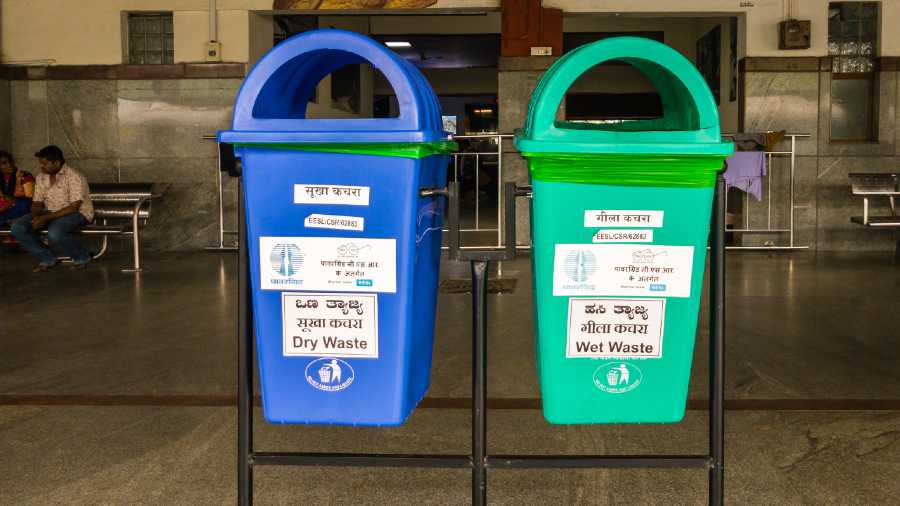Senior officials of the 16 boroughs of Kolkata will visit neighbourhoods with their teams to interact with residents and identify the problems they are facing while segregating waste and handing it over to collectors, the Kolkata Municipal Corporation (KMC) has decided.
The assistant directors of the solid waste management department in each of the boroughs — who will head the team for waste collection — will identify problem areas and submit reports outlining ways to step up garbage collection across the city, the civic body has decided.
“The assistant directors will talk to conservancy supervisers, overseers, sub-overseers and members of the collection team and try to identify the problem areas, including locating premises from where the waste collection was not upto the mark,” said a senior official of the KMC’s solid waste management department.
“We need to understand whether there are any shortcomings on our part before talking to the waste generators,” he said.
The KMC has introduced a system of waste segregation where waste has to be segregated into two categories and put in colour-coded bins — biodegradable or wet waste in green bins, and non-biodegradable or dry waste in blue bins.
The Solid Waste Management Rules 2016, applicable to the entire country, mandates waste segregation at source.
Senior officials admitted across several parts of the city, the segregation was yet to be implemented successfully with members of several households yet to adapt to the system.
Complaints of waste being littered across streets or dumped in corners continue to pour in, officials admitted.
The civic body has decided biodegradable or wet waste, which includes food and kitchen waste, will be compacted to get the fluid squeezed out of it before being taken for bio-compost.
The non-biodegradable waste, which includes plastic, paper and metal, will be sorted at transfer stations or some other points and the individual items will be sent for recycling. The waste that cannot be recycled or taken for compost will be sent to the dumping ground.
